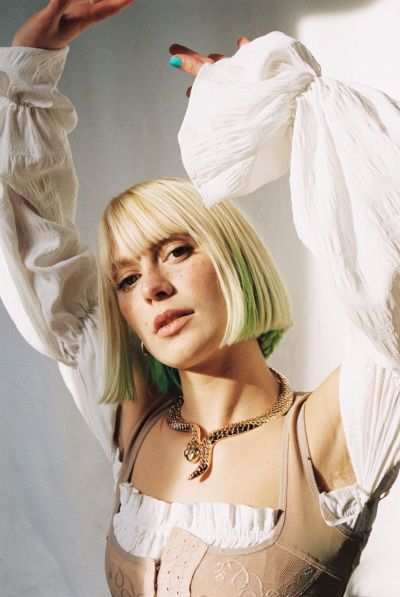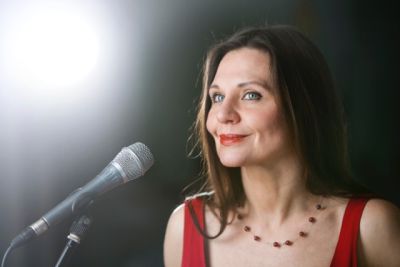Alli Neumann

Alli Neumann describes the decade in which she was anything but financially successful as the longest stage of her career to date. She has always loved making music and performing with various blues and rock bands, but early on, poorly attended gigs, low fees, and muted reactions could make even a positive individual like Alli Neumann doubt her own decisions. Would the naysayers who had dismissed her dream of a singing career as naive end up being right? Were talent and dedication alone perhaps not enough to make a name for oneself?
Neumann developed a profound relationship with music at an early age. As a child, she discovered a Connie Francis record with her father at a flea market and was enthralled by songs like “Schöner fremder Mann” (“Handsome, strange man”). Already self-assured and a keen performer as a tiny tot, she performed songs by Connie Francis and France Gall in retirement homes. When her interest in German Schlager music waned, Alli Neumann learnt to play the guitar and tried her hand at blues, a style of music that is hugely popular in Poland and to which she was introduced there at an early age by her maternal grandfather. He was a great blues lover and played the mandolin and violin, while her mother played the trombone. Alli made music and sang with adults from an early age: songs by Czesław Niemen or Stare Dobre Małżeństwo were popular choices. She later discovered the musician Maryla Rodowicz as an inspiration, along with the lyrics of Agnieszka Osiecka, which Neumann describes as “timeless” and “poetic”. Further role models cited by the artist include strong Polish women such as Renata Przemyk and Agnieszka Chylińska, but also Ralph Kaminski and Brodka. Gwen Stefani, Prince, Oasis, and Alanis Morissette are also among Neumann’s early influences and she remembers city festivals where she performed covers of their songs. These days, she describes her own musical style as “alternative pop music with distorted guitars and a dash of funk and blues”. Then she adds: “But actually, I don’t really know. I love so many different genres and don’t want to pigeonhole myself.”
Alli Neumann began writing her own songs as a teenager. In a video interview, she wryly comments on her youth in North Frisia: “You could either spend your days drinking or making music.” She was immersed in the music scene at the “Ton-Steine-Scherben” House (named after the infamous German band) in Fresenhagen and was encouraged by Jochen Hansen, Rio Reiser's former bassist, to compose her own songs. At the tender age of 14, she signed a record deal and promptly dropped out of school. Looking back, she considers the decision to be a “total disaster” and says: “I wasn't at all ready for it yet. And I think I also made pretty terrible music.”
Alli Neumann changed tack, finished school after all, and then got off to a flying start: in 2018, she played one of the two leading roles in Kim Frank’s TV film “Wach”. In the same year, she released her first EP as a solo artist, “Hohes Fieber”. In 2019, she released her second EP, “Monster”. With the single “Zeit steht” (a collaboration with the singer Trettmann and his producer team “Kitschkrieg”), Neumann scored a hit that made it into the top ten of the German charts and has been streamed over 40 million times to date. In 2020, Neumann played a leading role in Detlev Buck’s gangster comedy “Christmas Crossfire”.
The following year would be a very special one for Alli Neumann, as she launched her own music label JAGA Recordings in 2021, under which she released her first full album in partnership with the Sony Music company “Four Music”. It bears the title “Madonna Whore Komplex”, by which Neumann takes aim at Freud’s assumption that, from a male perspective, women are often either whores or saints. Neumann challenges this simplistic, sexist categorisation with the empowering message that people can free themselves from role models and be anything they want. Just as on the EPs, the songs on Alli Neumann’s successful debut are sung in German.


